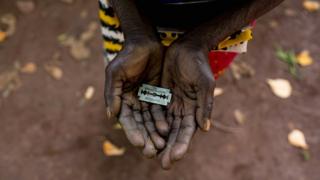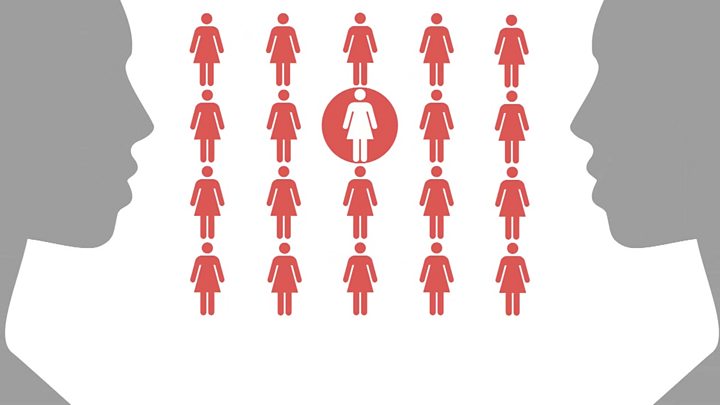 Image copyright Getty Images
Image copyright Getty Images Sudan has criminalised carrying out female genital mutilation (FGM), making it punishable by three years in jail.
Some 87% of Sudanese women aged between 14 and 49 have undergone some form of FGM, according to the UN.
In Sudan it is common for women to get the inner and outer labia, and usually the clitoris, removed.
FGM can result in urinary tract infections, uterine infections, kidney infections, cysts, reproductive issues and pain during sex.
Girls get cut because of a widespread cultural belief that it is essential for girls’ reputations and future marriage prospects.
But there has been a global trend towards banning the practice.
The amendment to the criminal law was approved on 22 April, Reuters news agency reports.
Under the amendment, anyone who performs FGM either inside a medical establishment or elsewhere faces three years’ imprisonment and a fine.
Types of FGM:

Media playback is unsupported on your device
- Type one: Clitoridectomy – partial or total removal of the clitoris
- Type two: Excision – removal of the clitoris and inner labia (lips), with or without the outer labia
- Type three: Infibulation – cutting, removal of part or all of external genitalia and stitching or narrowing of the vaginal opening
- Type four: Any other type of intentional damage to the female genitalia (burning, scraping, piercing)
What is FGM, where does it happen and why?
Click Here to Visit Orignal Source of Article https://www.bbc.co.uk/news/world-africa-52502489


